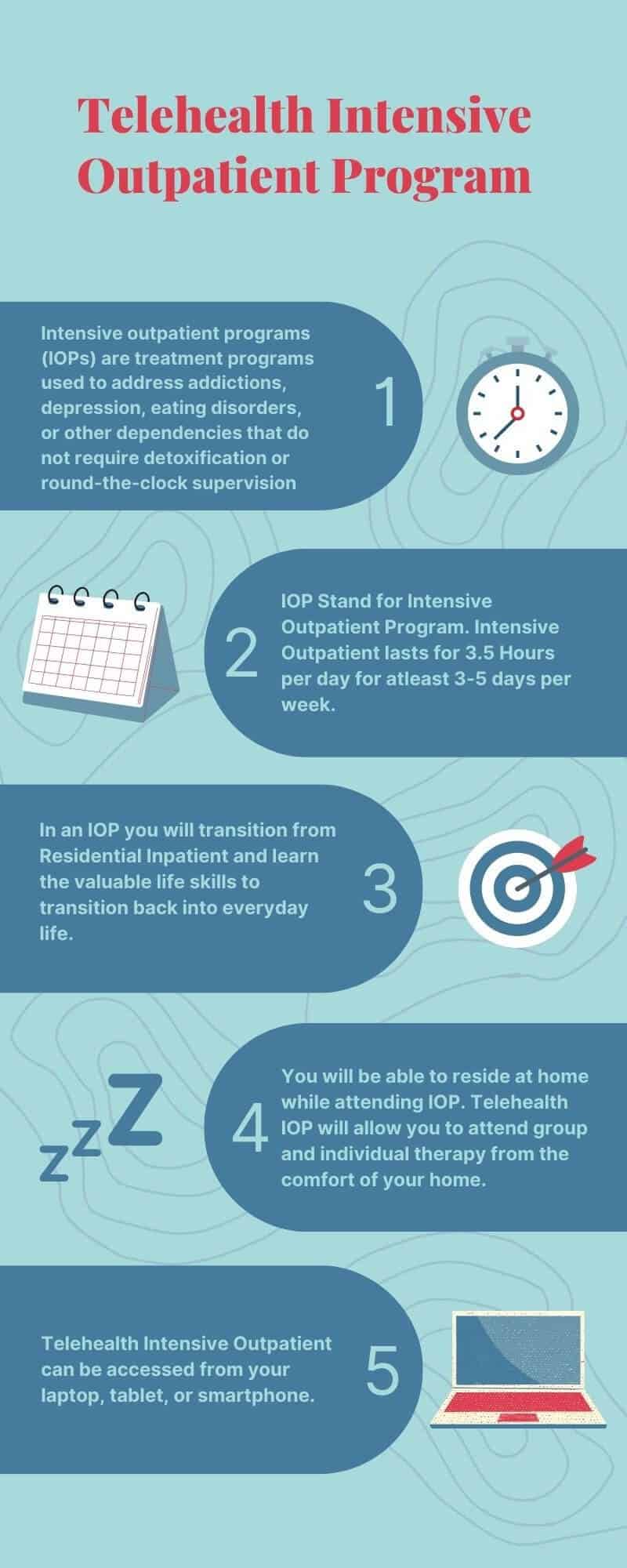Discover the Benefits of an Intensive Outpatient Program (IOP) for Recuperation
Discover the Benefits of an Intensive Outpatient Program (IOP) for Recuperation
Blog Article
Navigating the Intricacies of Dual Diagnosis Treatment Within an Extensive Outpatient Program Establishing
In the world of mental wellness and addiction treatment, the junction of twin medical diagnosis provides a nuanced challenge that requires a detailed and tailored approach. By exploring the complexities of dual diagnosis treatment within this extensive outpatient context, a clearer path emerges towards holistic and sustainable recuperation for those grappling with these intertwined difficulties.
Twin Diagnosis Introduction

Understanding double diagnosis is crucial as it calls for a detailed and integrated strategy to therapy. By recognizing the interaction in between substance usage and mental wellness, doctor can tailor interventions to meet the unique needs of each individual. This holistic approach not only addresses signs however also targets hidden elements that add to the dual diagnosis.
Additionally, untreated dual medical diagnosis can result in a cycle of regression and intensifying psychological wellness signs. By recognizing the complexity of double diagnosis and providing specific treatment, medical care experts can sustain people in accomplishing lasting healing and boosted psychological health.
Tailored Therapy Strategies
Acknowledging the detailed interplay in between substance usage problems and psychological health problems, the growth of customized treatment strategies is vital in resolving the intricacies of dual medical diagnosis in mental health therapy. Customized treatment plans are personalized strategies that think about the distinct needs, challenges, and goals of individuals encountering twin diagnosis. These strategies are designed collaboratively by a multidisciplinary group of specialists, including psychoanalysts, psychologists, social employees, and dependency professionals, to ensure comprehensive and integrated care.
Tailored therapy plans usually include a combination of therapies, medications, and behavioral treatments that target both the compound usage problem and the psychological wellness problem at the same time. These strategies might include cognitive-behavioral treatment, dialectical behavior modification, medication-assisted treatment, individual therapy, group treatment, and household treatment, to name a few evidence-based treatments. By personalizing treatment strategies to specific circumstances, tailored plans can deal with the source of dual medical diagnosis, advertise lasting recovery, and boost total lifestyle for individuals having problem with co-occurring disorders.
Integrated Treatment Strategy
An incorporated care approach in double medical diagnosis therapy combines clinical, psychological, and social treatments to attend to the intricate demands of individuals with co-occurring material use conditions and mental health problems. This strategy recognizes that treating one aspect of a dual diagnosis without dealing with the other can cause ineffective outcomes. By integrating medical treatments such as drug monitoring for mental health and wellness problems with psychological treatments like cognitive-behavioral treatment for substance use conditions, individuals get comprehensive care that targets all elements of their double medical diagnosis.
In addition, the social facet of integrated care involves dealing with environmental elements that may contribute to the advancement or perpetuation of substance use and mental health concerns. This can consist of family members characteristics, housing instability, or absence of social support. By including social interventions like family members therapy, vocational support, and community resources, the therapy comes to be extra holistic and customized to the person's particular needs. Generally, an incorporated treatment method in twin medical diagnosis treatment within an intensive outpatient program setup aims to provide comprehensive, effective, and customized treatment to people facing co-occurring disorders.
Challenges in IOP Setting
In the context of double medical diagnosis therapy within an extensive outpatient program, navigating the intricacies of co-occurring substance usage conditions and psychological health conditions provides considerable difficulties. One of the primary obstacles in the IOP setting is the coordination of care between psychological hop over to here health and wellness specialists and material misuse professionals to make sure a comprehensive therapy method. This requires reliable communication, collaboration, and a deep understanding of just how these conditions connect and affect each other.

In addition, dealing with stigma and resistance to therapy within the IOP setting can restrain progress. Some people might be reluctant to disclose their twin diagnosis or may really feel embarrassed, hindering their engagement in the restorative process. Getting rid of these barriers demands a helpful and non-judgmental setting that fosters count on and openness.

Collaborative Specialist Efforts
Reliable twin diagnosis treatment in an extensive outpatient program necessitates seamless cooperation amongst psychological wellness professionals and drug abuse specialists to make certain an extensive and integrated strategy to care (Intensive Outpatient Program (IOP)). This cooperation is essential to attend to the complicated interplay between mental health and wellness conditions and chemical abuse, as both facets require to be dealt with simultaneously for effective end results. Psychological health experts bring expertise in detecting and treating mental health problems, while compound abuse experts have specialized understanding in dealing with dependency concerns. By functioning together, these specialists can produce customized therapy plans that accommodate the unique requirements of each patient, taking into consideration both their psychological health and chemical abuse obstacles.
Collective initiatives likewise encompass regular interaction and details sharing amongst employee to guarantee a natural therapy approach. This may involve case conferences, joint sessions with the client, or shared documents to track progression and adjust therapy approaches as needed. In addition, partnership might include entailing various other healthcare specialists such as primary treatment doctors or family members specialists to give all natural support to the individual. Inevitably, a joined front of professionals functioning with Get More Info each other improves the performance of double diagnosis therapy within an intensive outpatient program.
Verdict
To conclude, efficient dual diagnosis therapy within an intensive outpatient program i loved this setting calls for customized therapy strategies and an incorporated care approach. Obstacles may arise in this setting, yet joint efforts amongst experts can aid navigate these intricacies. By addressing the one-of-a-kind demands of individuals with co-occurring psychological health and substance utilize conditions, IOP programs can offer extensive and all natural care to support recovery and general health.
Report this page